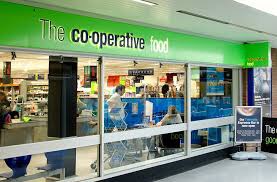More and people are leaving behind the idea of the shopping list and pre-planned meals in favour of spontaneity, according to a new report issued by The Co-operative Food
.The second in a series of Convenience Retailing reports from The Manchester based Co-op, titled Mission Impulsive, highlights how many shoppers now decide what to eat on the day rather than planning days or weeks in advance.
The report, which analyses food shopping behaviours in 2015 to those of the past, also shows how modern consumers are favouring mid-week top up shops over a big weekly or monthly shop.
The report found that sixteen per cent of consumers surveyed never use a shopping list and sixty per cent only write down the key products they require.
The findings highlight a significant shift away from meal planning and the rise of spontaneous cooking fuelling top up shops
Mid-week shopping is seeing growth whereas Friday and Saturday purchases have seen a decline and that Younger demographics are leading the move to convenience shopping
The shift towards impulse meal components means that consumers are less reliant on weekly meal planning and are more favourable towards spontaneous dining, and making meal decisions on the day. This habit has fuelled the need for mid-week shopping and explains why consumers are choosing top up shops at convenience retailers throughout the week, rather than a big supermarket shop.
The convenience market is currently worth £37.7bn and is projected to grow by 17 per cent to be worth £44.1bn in 2020, increasing its share of the total market from 21.2 per cent in 2015 to 22 per cent in 2020.
With product innovation introducing meal kits, smaller cuts of meat, pre-packed steamed vegetables and other meal solutions, it is possible to produce a balanced and nutritious meal without planning and spending hours in the kitchen.
Spontaneous shopping and a shift in social and lifestyle agendas have thus, effectively killed off the family food shopping list as 60 per cent of consumers surveyed only write down the key products they require
The number of single households has seen a five per cent rise over the last 10 year (+) and developments such as this, along with longer working hours, and the desire to reduce food waste are playing to the strengths of the convenience sector as shoppers look to shop ‘for tonight’ or for the next couple of days, rather than for a week.
Five years ago, it was the norm for families to incorporate a big supermarket shop into their weekend, but consumers are increasingly becoming in favour of visiting their local convenience store on a regular basis throughout the week, and shunning their visit to the out of town larger supermarket.
Steve Murrells, Chief Executive, Retail said:
“The idea of planning and eating three square meals a day are a thing of the past. Today many people who live very busy lives decide what to eat just a few hours in advance and will visit their local store looking for inspiration and easy to prepare food.
“Our report, the second in our series, highlights how social and lifestyle developments have changed consumers’ attitudes towards weekly meal planning and how a shift in purchase behaviours has led to the development of products in response to this consumer trend.”







